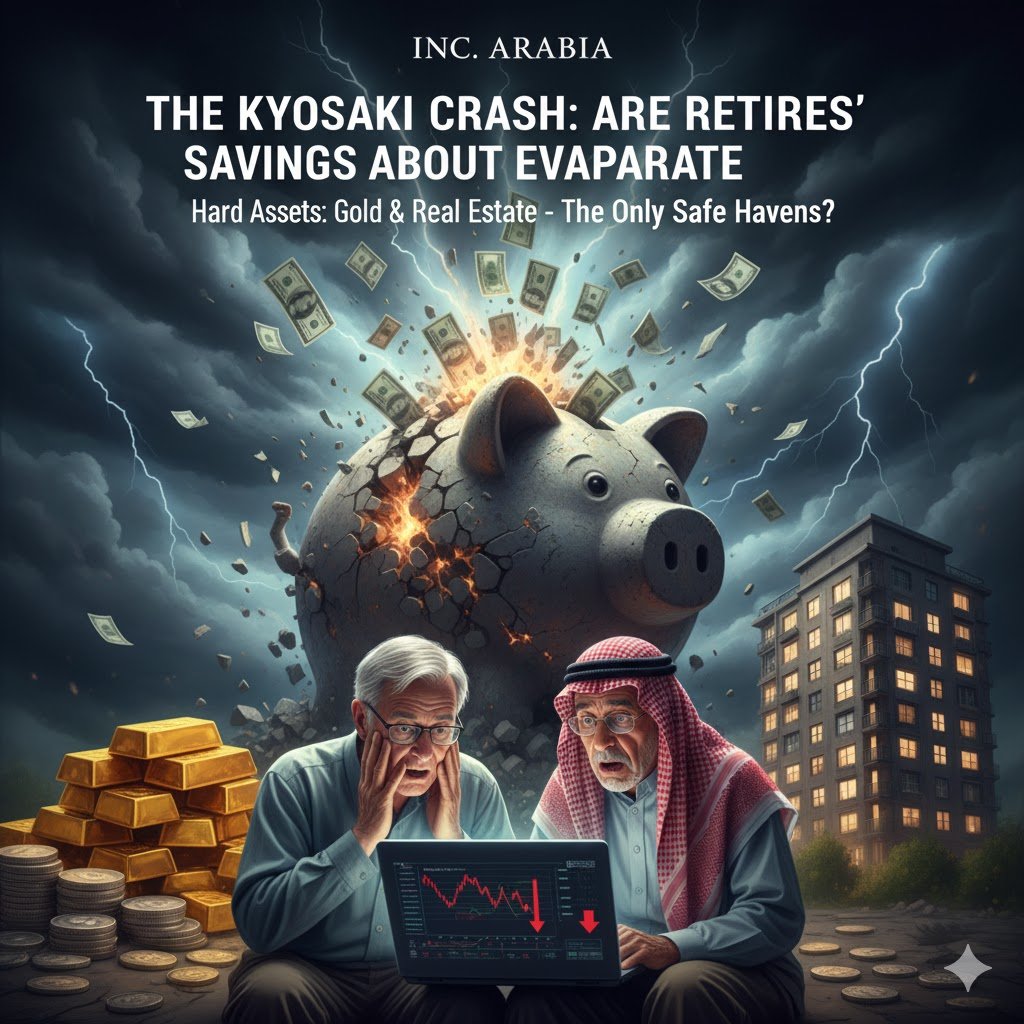The Kiyosaki Crash: Are Retirees’ Savings About to Evaporate?
For a long time, Robert Kiyosaki, the author of the renowned “Rich Dad Poor Dad,” has warned that a recession isn’t just a possibility but an inevitability. This time, however, his warning carries an even sharper edge, as he predicts the “biggest crash in world history” this year, specifically cautioning retirees that their savings might “evaporate.”
Why Is Kiyosaki Raising the Alarm So High?
Kiyosaki’s pessimistic forecasts are based on several economic factors he believes are pushing the world to the brink:
- The Massive Debt Bubble: He argues that the cumulative debt of governments, corporations, and individuals has reached uncontrollable levels. He suggests that central banks’ attempts to “print money” to salvage the situation will only exacerbate inflation and erode purchasing power.
- The Risk of “Evaporating Savings”: Kiyosaki links the danger of retirees’ savings collapsing to traditional pension funds and financial markets (stocks and bonds). Should a major market crash occur, the assets in which these funds are invested would lose value, directly endangering retirees’ nest eggs.
- Loss of Confidence in the Dollar: His warning highlights that confidence in fiat currencies in general, and in the dollar as the global reserve currency, is eroding. This leads him to advocate for investing in “real” assets.
Advice for Entrepreneurs: What Can Be Done Now?
In the face of these bleak predictions, entrepreneurs don’t just wait. According to Kiyosaki’s investment philosophy, the strength of an entrepreneur lies in flexibility and shifting towards safe-haven assets:
- 1. Convert Liquidity to Hard Assets: Instead of holding large amounts of cash in banks, Kiyosaki advises investing in tangible assets that historically preserve their value during economic crises, such as:
- Precious Metals: Gold and Silver.
- Income-Producing Real Estate: Properties that generate positive cash flow even during a recession.
- 2. Invest in Financial Education: He emphasizes that the biggest investment is in your financial intelligence. Entrepreneurs must learn how money and the banking system work to be prepared to turn a crisis into an opportunity.
- 3. Build Systems Independent of Traditional Banks: A smart entrepreneur builds their business to be less vulnerable to shocks in the traditional financial system by diversifying funding sources and relying on sustainable cash flows.
Ultimately, the question remains: Is Kiyosaki’s warning an exaggeration, or is it a red light that entrepreneurs and investors should take with utmost seriousness this year? In a turbulent economic environment, Kiyosaki’s principle holds: “The assets the rich dad buys are not the same ones the poor dad buys.




